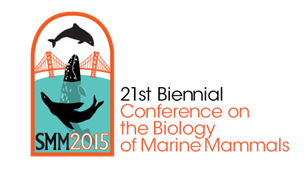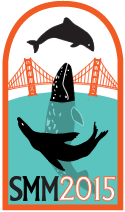Well here we go – my first blog in my new role as President of this very fine Society.
Like all of us privileged enough to serve in the variety of roles that keep our Society vibrant, relevant, informative, influential and above all, attractive to be a part of, we do so in a voluntary capacity. We have to learn to balance our usually busy day jobs with the varied and (mostly) interesting roles we play for the society. The fact that my first blog has appeared a couple of months into my new role is a sign that I’ve yet to get that balance quite right! I promise to lift my game (particularly to my patient friends and colleagues on the Board)!
The first and most important task is to thank – most sincerely – out past President, Helene Marsh. Helene is quite simply a force of nature. Her drive, passion and depth of knowledge are a potent combination and have delivered measurable, positive impacts in marine mammal science and conservation. Thanks so much Helene for all you have done for marine mammals, and in this case, for the Society. It’s an overused metaphor, but you really have left very large shoes to fill!
So…the Australocene continues – two Australian Presidents (no – that’s not an oxymoron!) in a row. Its a great sign of our growing internationalisation; surely a healthy trend for our Society.
There are some very real – and in my view quite healthy – tensions emerging among our membership. Some of these were manifest in Dunedin where there were ‘robust’ views in the lead up, during and post our special events on issues of marine mammal killing techniques and killer whales in captivity – both complex and value-laden issues. While there were very few members who suggested that we had got it dead right for those sessions, there were almost equal numbers of people I heard from who said that we either went much too far, or not nearly far enough! So perhaps we did as well as was possible in steering our path on how our science should influence conservation and welfare issues.
I believe almost all in the Society would agree that we have an important role in issues like these – and many other marine mammal conservation issues where science intersects with disparate values, motivations and politics.
The tensions emerge primarily in resolving just what our role is and how we should enact it. None of us should be apologetic about having views on these issues that may not accord with some of our colleagues, but nor should we be intolerant or dismissive of those alternate views. This is a complex issue and there are many valid viewpoints.
Let’s start with the Society’s Mission: ‘… to promote the global advancement of marine mammal science and contribute to its relevance and impact in education, conservation and management’. We are unambiguously a global community focused on conducting and improving the quality and impact of our science (the growing impact factor of our Journal suggests we are making great progress on that front!).
I won’t try, in this blog, to outline a clear path for how we maximise the relevance and impact of our science, while avoiding the slippery slope to the role of advocate – a place where the well earned science credential of our Society would be devalued.
I, of course, have my views, and indeed I have spent almost my entire career in the challenging and interesting space where science interacts with the development of public good policy. But my role as President is not to promote my particular views, but rather, to ensure that I help facilitate, and indeed encourage, a respectful dialogue that takes accord of the divergent views and finds that acceptable pathway that ensures our science continues to make a difference.
In a couple of months I will meet with the Board and conference organising committee to further plan towards what is likely to be our largest ever gathering; San Francisco; 13-18 December 2015 (if you have not already done so – block it out in your diary and start saving your travel money!). The theme; ‘Bridging the past towards the future’ will ensure the conversation on influence and impact from our science will continue there, along with all the great diversity of the work and issues the conference will cover.
I will let you know how our meetings go in a later blog – but keep an eye out for the many conference updates in the meantime.
Best wishes to you all,
Nick
 (depending on where you are in the world)!
(depending on where you are in the world)!


